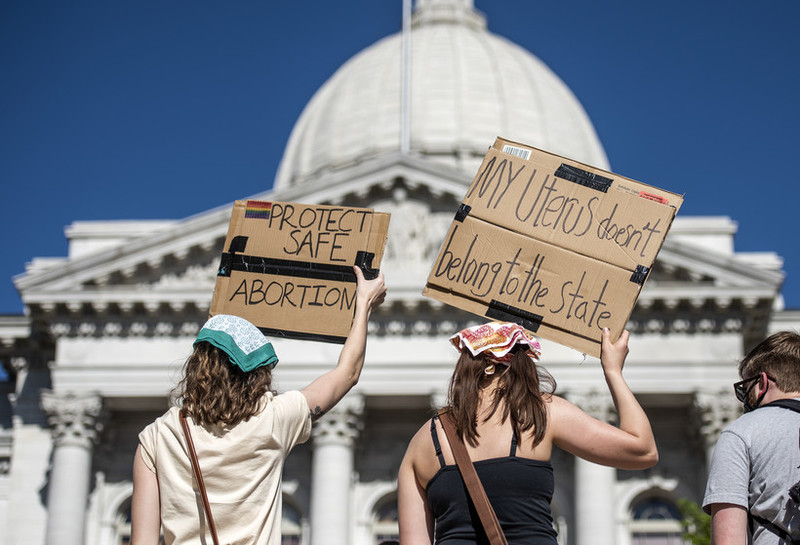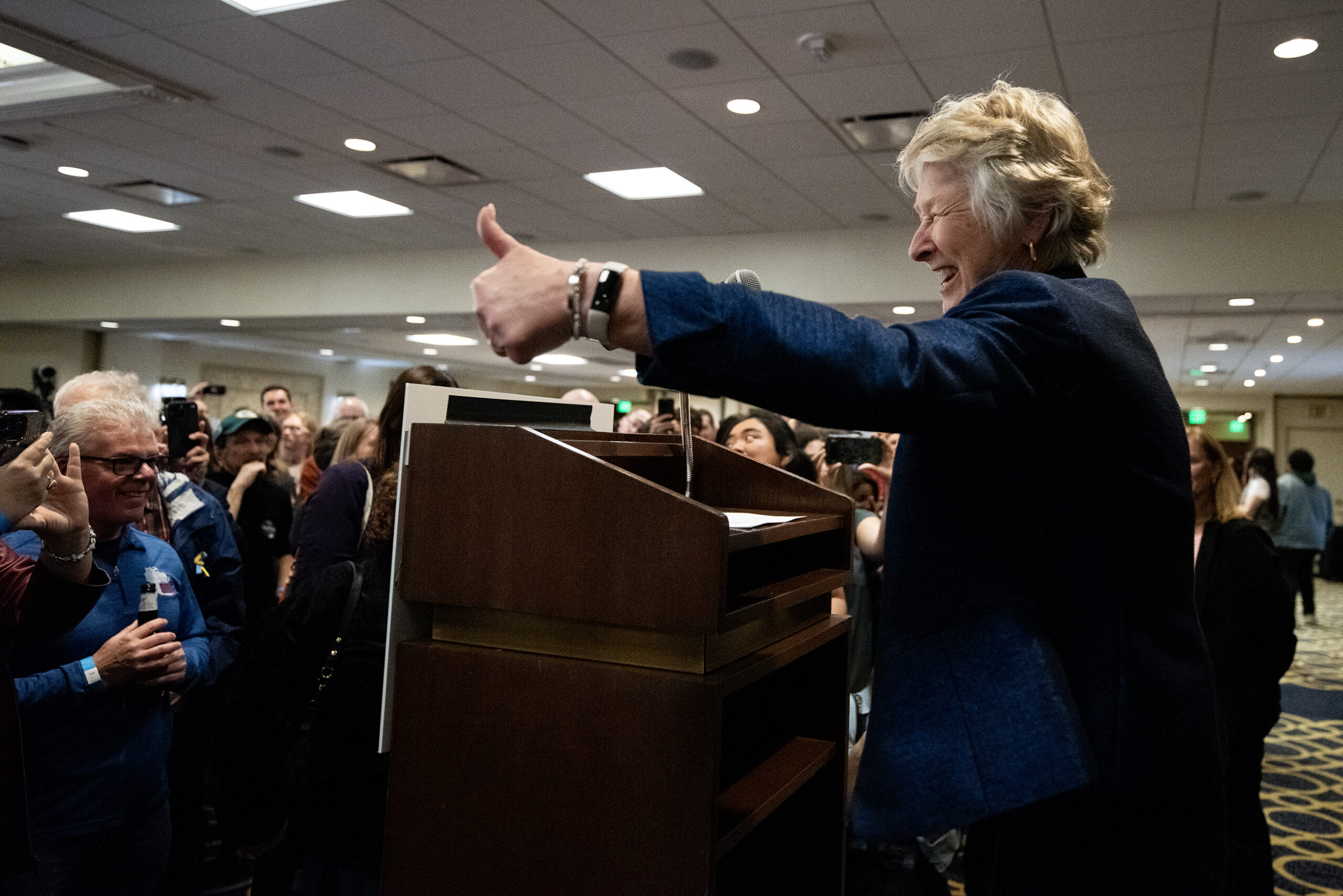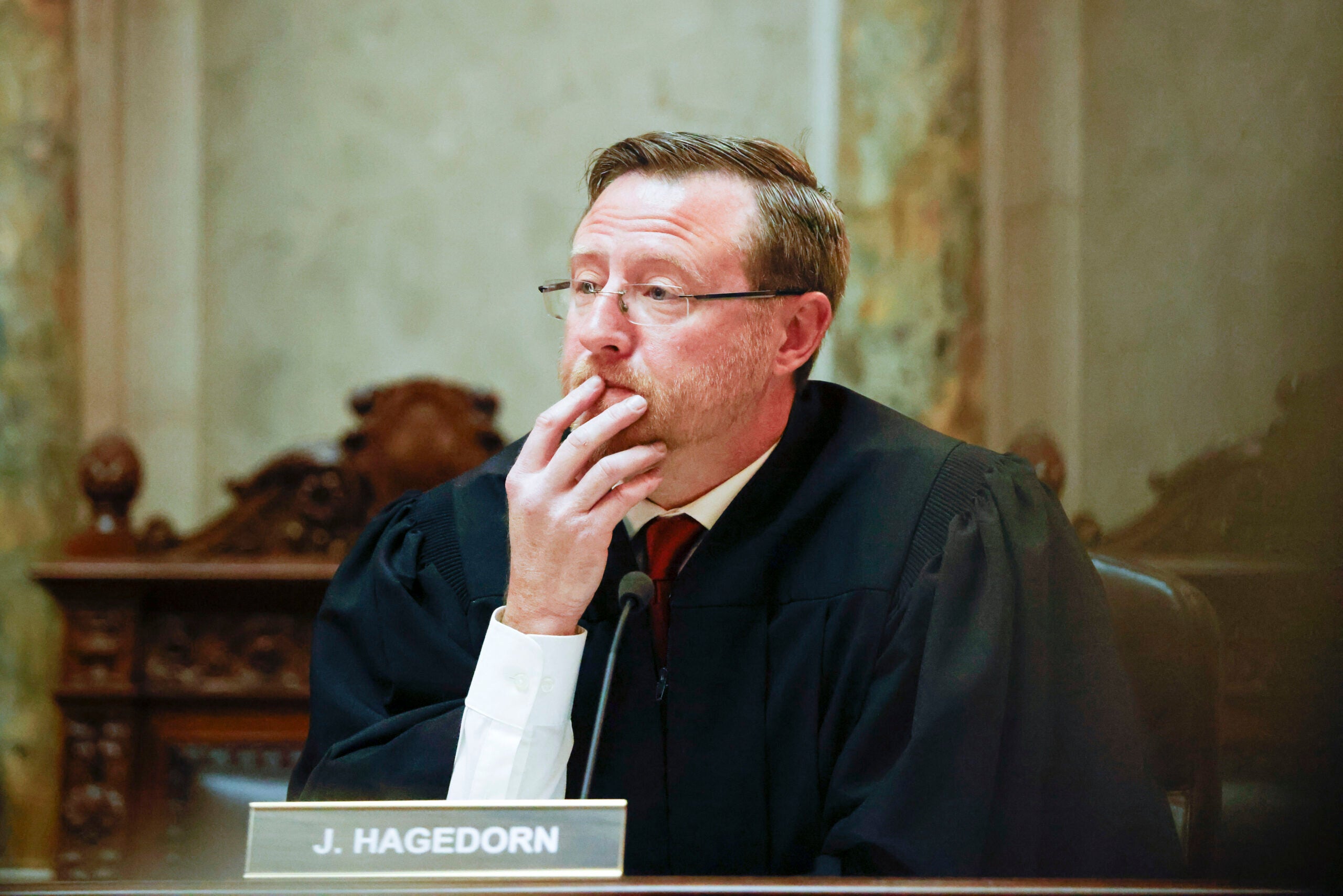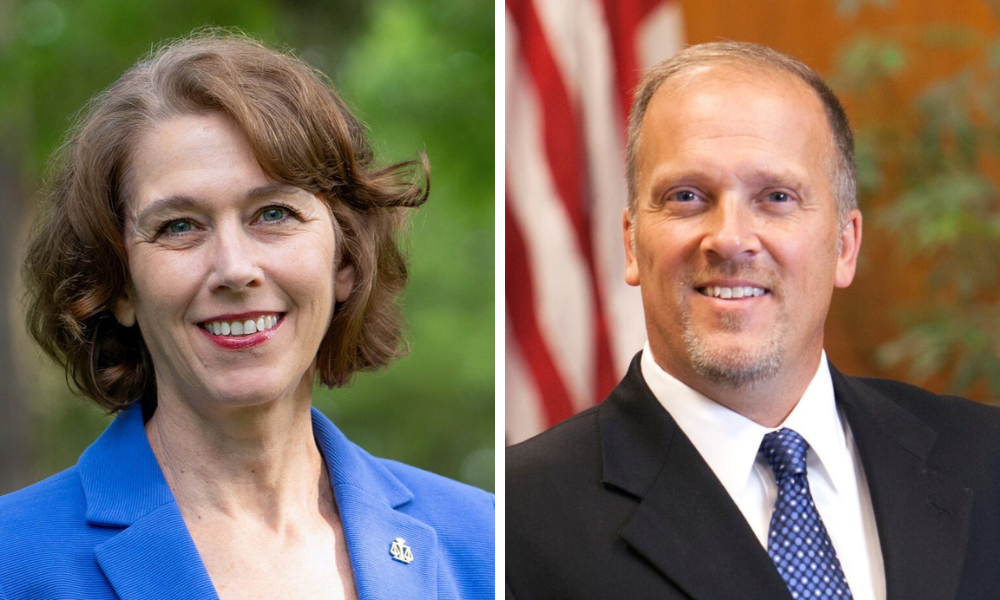The Wisconsin Supreme Court has accepted two high profile abortion lawsuits, one asserting the state constitution protects a woman’s right to abortion and another challenging a pre-Civil War law that was for years thought to ban the procedure.
The lawsuits were filed by Planned Parenthood of Wisconsin and Democratic Attorney General Josh Kaul and deal with separate legal questions, both of which arose after the U.S. Supreme Court overturned federal abortion protections on June 24, 2022.
Abortion providers in Wisconsin ceased all abortion services for more than a year after the U.S. Supreme court ruling, pointing to the state law initially passed in 1849. That changed last year when a Dane County circuit court judge ruled the law does not prohibit consensual medical abortions. Planned Parenthood of Wisconsin resumed abortion services at clinics in Milwaukee and Madison, and later resumed abortion services in Sheboygan County.
Republican Sheboygan County District Attorney Joel Urmanski vowed to appeal the case to the state Supreme Court, which the court’s liberal majority accepted Tuesday.
While it took the case, the four liberal justices were joined by conservative Justice Brian Hagedorn in rejecting motions from Wisconsin anti-abortion groups to intervene. Conservative Justice Rebecca Bradley and Chief Justice Annette Ziegler dissented, with Bradley writing that the “majority’s astonishing unwillingness to consider the pro-life position in this matter will only erode what remains of the public’s trust in the legitimacy of any decision the majority makes in this case.”
The Planned Parenthood lawsuit before the court has been described by anti-abortion groups as “the most concerning,” because if the court’s majority finds the Wisconsin Constitution protects a woman’s right to medical abortion services, it could open the door to future lawsuits striking down abortion restrictions.
Those include an existing ban on abortions after 20 weeks of pregnancy, a 24-hour waiting period after a woman’s first visit with a physician before receiving abortion services or medications and a mandatory ultrasound prior to abortion procedures.
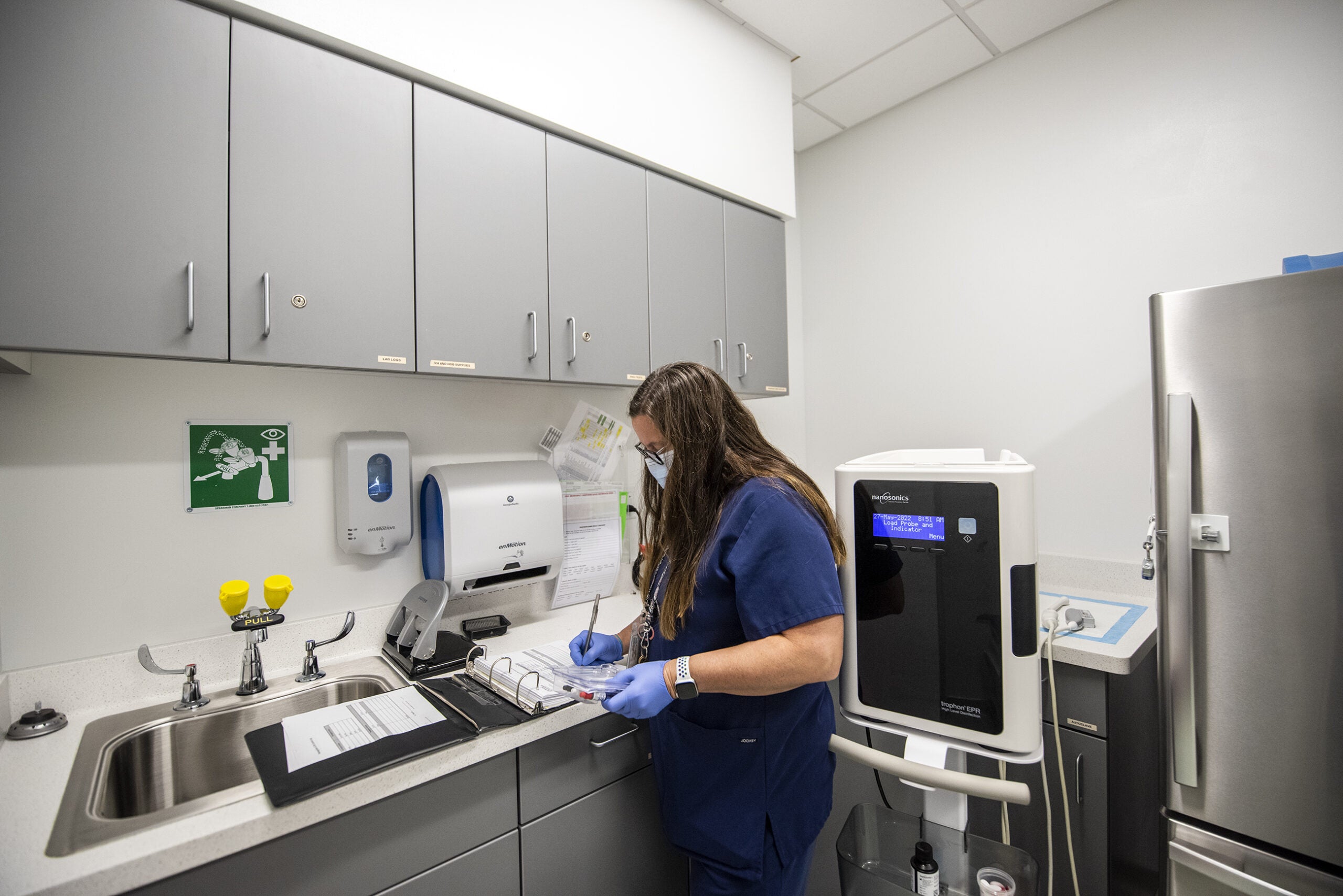
Stay informed on the latest news
Sign up for WPR’s email newsletter.
In the order accepting Planned Parenthood’s case, liberal and conservative justices sparred with one another. Conservatives, again, accused the liberal majority of wading into politics, while liberal justices accused their conservative colleagues of hypocrisy.
Justice Rebecca Bradley claimed the liberal majority is attempting to remove the issue of abortion “from the Democratic process,” which “shows grave disrespect for the People’s sovereignty.”
“The matter should be left to the People to decide through the democratic process designed for resolving such policy questions, with the vigorous debate naturally accompanying the legislative process,” said Bradley.
Bradley and Ziegler accused liberals, including Justice Janet Protasiewicz, of prejudging the case. Abortion rights were a centerpiece of Protasiewicz’s successful campaign against former conservative Justice Dan Kelly last year.
“Janet Protasiewicz riddled her campaign rhetoric with innuendos about her ‘values’ on abortion, gesturing to her financial supporters how she would rule on abortion related cases,” Bradley wrote.
Bradley then cited passages from Wisconsin’s Code of Judicial Conduct regarding recusals from cases.
Liberal Justice Jill Karofsky accused Bradley of engaging in “ad hominem attacks that would be more at home in an ill-advised late-night rant on social media than in a judicial writing.”
“How can Justice Rebecca Grassl Bradley have standing to criticize a colleague for signaling her values on the campaign trail while she did that on her own?” Karofsky said. “How can she call for the recusal of one of her colleagues when she herself voted against a stronger recusal rule while in the majority? And how can she complain about the court granting an original action petition when in the past she too voted to grant original actions tackling controversial constitutional issues?”
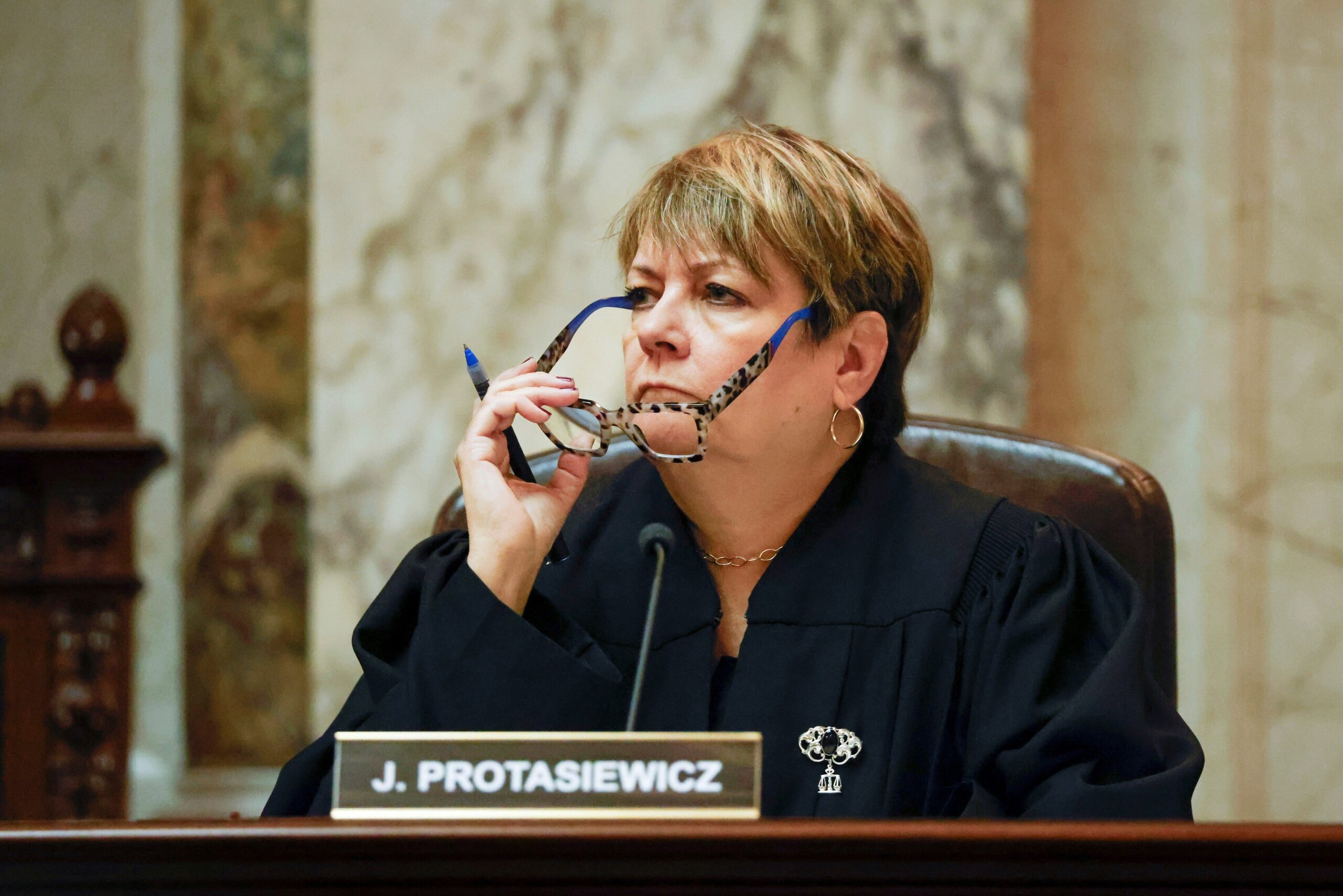
In his dissent, Justice Hagedorn described abortion as one of the liberal majority’s “pet issues.”
“It is all the more important in politically charged cases like this for us to act like a court and not play favorites,” said Hagedorn. “How disappointing that at the moment of testing, the majority fails to apply the same rules to everyone.”
Karofsky called Hagedorn’s “pet issues” comment “more troubling” than Bradley’s attacks.
“Regardless of one’s views on the morality, legality, or constitutionality of abortion, it is undeniable that abortion regulation is an issue with immense personal and practical significance to many Wisconsinites,” Karofsky said. “Characterizing and reducing abortion to a ‘pet issue’ is disrespectful, demeaning, and derisive to adults and children who have been impacted by abortion laws and litigation.”
Reactions to the Supreme Court’s orders came quickly.
Attorney Luke Berg of the conservative Wisconsin Institute for Law and Liberty said the abortion question should go through the legislative process, not the courts.
“No judge, justice, or lawyer should be creating policy for Wisconsinites out of thin air — yet that’s what is happening now,” said Berg. “Wisconsin’s Supreme Court is making a historic mistake by even considering an original action in this case.”
In January, Assembly Republicans introduced a bill to ban abortion after 14 weeks of pregnancy if it also passed a statewide referendum. The bill passed the Assembly but was never taken up by the State Senate.
A social media post from Planned Parenthood of Wisconsin celebrated the court’s decision to hear the case.
“With continued attacks on abortion, as well as other sexual and reproductive health care like contraception, gender-affirming care, and IVF, protecting access to abortion and establishing protections bodily autonomy is essential to ensuring everyone can make decisions about their reproductive health and lives,” wrote the organization.

Wisconsin Right to Life Legislative Director Gracie Skogman called liberal justices’ decision to take up the Planned Parenthood case “a weaponization of the court system to enshrine abortion access on demand by radical pro-abortion advocates.”
Legal briefs on the case challenging the 19th century law must be filed within 40 days of the court’s order. A briefing schedule for the Planned Parenthood case hasn’t been set.
While Monday’s order was significant, it was not altogether unexpected. A draft of the order was publicized last week, prompting the court to order an investigation into who leaked it.
Wisconsin Public Radio, © Copyright 2025, Board of Regents of the University of Wisconsin System and Wisconsin Educational Communications Board.

